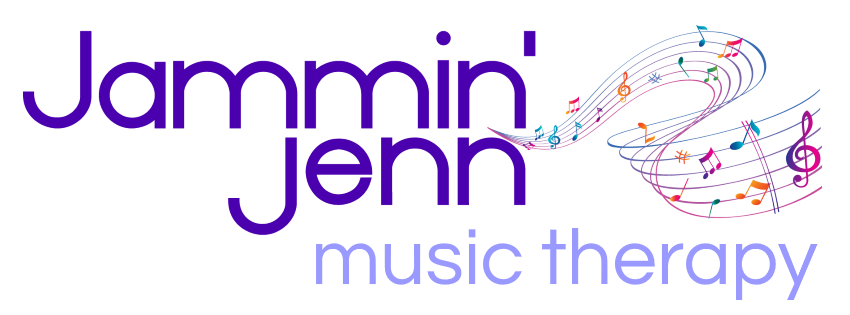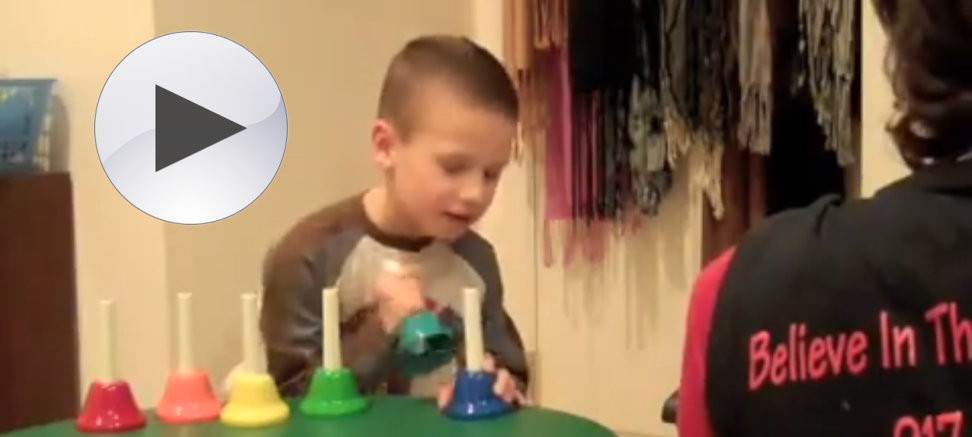
Jammin Jenn featured: Using Instagram Live to Help Children with Autism Cope During the Pandemic
THE POWER OF MUSIC
Jammin’ Jenn Leveraging Music to “Pull the Words Right Out of Him”
The Power of Music Demonstrating Excellent Connection and Progress with Expressive Speech
Mia following cues of music therapist, Jennifer Pacht-Goodman AKA ”Jammin Jenn
Olivia So Connected by Music
The Power of Music Therapy
Music Has the Power to Heal...
Jammin' Jenn Staff has the Skill to Deliver It.
“Music can be a Language to realize potential… often it’s the only language.”
Why is Music so Powerful? Why would one use music to achieve a positive change in any typically developed person or a disabled person that has Autism, Dementia, or Alzheimer’s for instance? Why does a mere sequence of sounds hold such incredible value?
Music Facilitates Connection
The quick and easy answer is that music brings unique pleasure to humans. When music is infused into a therapy session, a connection is facilitated. What is happening is that those being treated experience recreation and joy. To humans, music is universally enjoyable. That, in part is where music’s power lies. Because we universally find music enjoyable, we tend to engage in it. This is the essence of the connection music therapists are able to build. For anybody, including special needs individuals, they can be detached, or “in their own world”. Music can be the key that opens the door to their presence. It connects the therapist.
Music Facilitates Transformation
When pleasurable music is heard, there are parts of the brain activated important in our processing of emotion, motivation, and reward. Music naturally positively alters mood, processing, and capacity for self-control. Everyone in the world relates to music. It is the universal language and has the power to reach those where communication or progress seems impossible.
Interestingly, neurological research supports the association between music and emotion. Both are processed in the right hemisphere of the brain. Speech is a left hemisphere process. As a result, music provides a means of compensation for language deficits and also can aid in language development. Really? Could a music therapist generate gains with a typically developed person that is severely depressed or anxious due to the pandemic? What about a typically developing person with anxiety or experiencing loss from the death of a family member? Generate gain in speech that perhaps other therapies are unable to achieve? How can an adult with severe speech impairment suddenly say syllables and words in a music therapy session when never heard otherwise? How can a child with severe Autism seem so present and “there” while singing a song assisted by a music therapist? Please see our video page to view demonstrations of transformations that capture the power of music. Apologies for the cliché, but especially in music therapy, “a picture is truly worth a thousand words”.
Jammin’ Jenn Music Therapy – Our Approach
Our practice focuses on leveraging the musically induced connection, transformation, and resultant positive disposition to build skills and produce progress. Our aim is to capture the power of music at work in our therapy sessions and simultaneously guide toward goals and objectives. Jammin’ Jenn Music Therapists are trained and experienced in recognizing each individual’s unique set of strengths, weaknesses, and learning styles. Musical activities are custom tailored to promote specific, communication, behavioral, cognitive, motor, and perceptual goals adaptively addressing a specific individual or group.
Music Therapy Research
The power of Music Therapy is becoming more and more established and validated by broader and increasingly recognized research. It’s fascinating! For more thorough and comprehensive explanations of the power of music please visit our music therapy research page.

Jammin Jenn featured: Using Instagram Live to Help Children with Autism Cope During the Pandemic
THE POWER OF MUSIC
Jammin’ Jenn Leveraging Music to “Pull the Words Right Out of Him”
The Power of Music Demonstrating Excellent Connection and Progress with Expressive Speech
Mia following cues of music therapist, Jennifer Pacht-Goodman AKA ”Jammin Jenn
Olivia So Connected by Music



